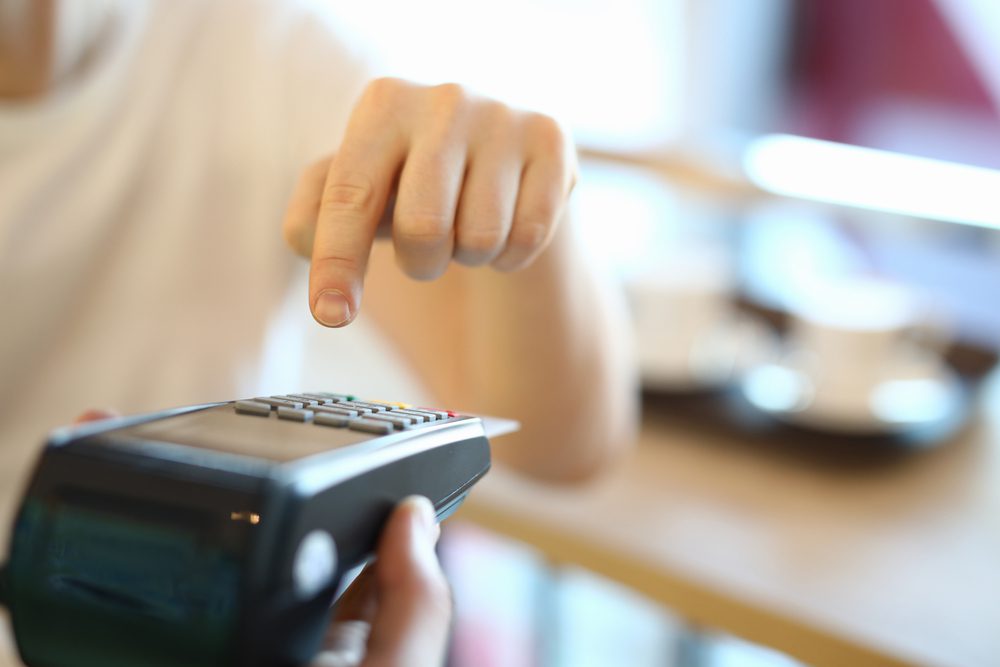Every time someone makes a payment – either in-person or online – a series of actions are triggered which form the payment process. There are several different steps in the process which businesses should understand if they are looking to optimise their payment strategies. One of these steps is merchant acquiring.
In this guide, the experts at Acquired.com will be looking at what merchant acquiring is, how it fits into the wider world of payment processing, and answering a few commonly asked questions about merchant acquiring itself. Keep reading to learn more, or get in touch with the friendly sales team at Acquired.com to understand how we can help you get the most out of your payment strategies.

What is merchant acquiring?
When carrying out a credit or debit card transaction for merchants, an acquirer (or acquiring/merchant bank) is a financial institution that has been licensed by major payment processors such as Mastercard or Visa. An acquirer’s primary responsibility is securely transmitting payment data to the card networks for authorisation by the issuer.
Merchant acquiring is the process of securely transmitting this data and managing the outcome when card issuers and banks approve or deny credit card or debit card payments.
Merchant acquirers will also deposit the correct transaction amount into the merchant account when a customer makes a payment. It’s worth noting that a merchant account is different to a business bank account – merchant accounts allow credit card and debit card payments to be deposited directly into the account, while a business bank account is where businesses actually access their funds.

Where does merchant acquiring sit in the payments process?
The payments process can be complicated to get your head around, particularly if you’re new to the payments sphere!
Fortunately, in most cases, the payments process is pretty uniform and goes through all of the same key steps: authorisation, processing, and settlement.
When a payment is made – either in-person at a Point of Sale terminal, or using an online checkout – the payment gateway passes the card details onto your merchant acquirer. They will then pass this data through to the card schemes, where card services (like Visa, Mastercard and American Express) will approve or deny the payment.
This is when the payment is authorised.
Once the payment has been authorised or denied, the merchant acquirer will communicate this to the card schemes and the banks at each end of the process. The actual funds then flow through each of the different key steps of the payment journey.
This is the processing part of the journey.
The merchant acquirer is also responsible for ensuring the right funds arrive in the right place, within the timescales the merchant acquirer and the business have agreed on (this will be slightly different for every single provider, based on their processing capabilities, security policies etc.).
The payment is now settled.
Do businesses need a merchant acquirer?
Most businesses will need a merchant acquirer, as every time you accept a card payment from a customer online or using a card reader, the bank card information goes through the payment processing chain. The card details are sent to the payment service provider, then to the merchant acquirer, who then sends it to the card company, and finally to the issuing bank.
Businesses that are cash-only or that don’t take card payments (for example, smaller organisations that take payments via PayPal or bank transfer) don’t need a merchant acquirer.
What is the difference between a merchant acquirer and a payment processor?
Merchant acquiring and payment processing have a lot of overlap – they are both key parts of the payment process, and payment processing technologies are often directly integrated with acquirers. However, it’s important to understand the differences between the two.
Merchant acquirers have the knowledge needed to ensure that all payments going through them are compliant, correct, and don’t show any signs of fraudulent activity. Payment processors simply execute the requests of the merchant acquirers, and aren’t actually involved in the flow of money – they’re sometimes considered the technical ‘arm’ of the acquirer.
FAQs about merchant acquiring
Is Mastercard a merchant acquirer? Is Visa a merchant acquirer?
No, Mastercard and Visa are not merchant acquirers. They’re card schemes, also sometimes called card issuers or card networks. They issue payment cards, and carry out customer card authorisation, as they’re the ones with the master records of credit card and debit card details.
Why do we need merchant acquirers?
Merchant acquirers are a key part of card processing. Acquirers need to obtain a licence from relevant regulatory bodies and card networks in order to process transactions. To acquire this licence, they must fulfil stringent requirements set out by both financial institutions and card schemes in a lengthy and complicated administrative process.
Businesses work with merchant acquirers to avoid having to go through this complex process themselves.
Who are the acquirer and the issuer in payments?
Card issuers represent customers, while acquirers represent businesses, to put it as simply as possible. Card issuers manage the relationship with cardholders, and acquirers support businesses that accept credit cards and other digital payments.
What is an example of an acquiring bank?
Some examples of acquiring banks include Barclaycard, Lloyds Cardnet, Trust Payments & Finaro.
How Acquired.com can help
Acquired.com is one of the UKs leading independent payment processors, so we have extensive experience when it comes to helping our clients make the most of their payment strategies.
When choosing a payment processor, there are a number of important considerations for businesses, including features like POS capabilities, mobile optimisation, and the handling of recurring payments. However, one of the most important is the variety of acquiring connections your chosen payment processor has.
Some payment processors are what is known as single-acquirer, meaning all of their transactions go through one acquiring bank. At Acquired.com, we are what is known as a multi-acquirer, which means we can route our customers’ transactions through different acquirers in order to get the best possible outcomes and payment success rates. By doing this, we can help increase successful sales, reduce risk for the businesses we work with, and increase customer satisfaction.
To learn more or get started with Acquired.com as your payment processor, please get in touch with our expert team!








